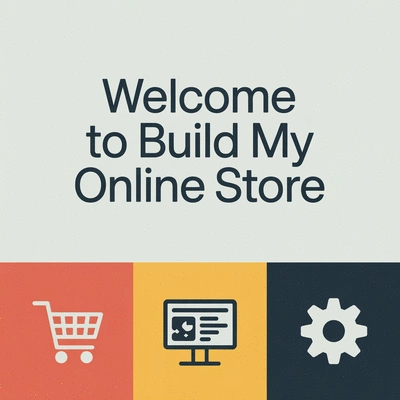Choosing the right payment solution is more crucial than ever in the fast-paced world of e-commerce. Imagine the impact on your business when customers can pay quickly, securely, and effortlessly. This guide will help you navigate the essential aspects of payment gateways, ensuring your online store not only attracts customers but also encourages repeat business.
What You Will Learn
- Understanding the importance of diverse payment options enhances customer convenience and satisfaction.
- Recognizing the significance of security in payment solutions, including PCI compliance and encryption technology.
- Evaluating different types of payment gateways—hosted, self-hosted, and API—to find the best fit for your business.
- Analyzing fees and transaction costs to ensure your payment gateway aligns with your budget and offers the best features.
- Embracing emerging payment options such as cryptocurrencies and Buy Now, Pay Later (BNPL) to appeal to a wider audience.
- Understanding the importance of multi-currency support for expanding your market reach globally.
Payment Solution Comparison: Key Features
This visual compares critical aspects of selecting a payment gateway, focusing on fees, security, and supported payment methods.
Understanding Payment Solutions for Your Online Store
When it comes to running an online store, payment solutions are a critical component that can make or break your business. They allow you to accept payments from customers seamlessly, ensuring a smooth transaction process. In today’s digital age, shoppers expect a variety of payment options, and understanding how these solutions work is essential for your e-commerce success.
Without the right payment solution, you risk losing potential sales due to frustrations like limited payment methods or complicated checkout processes. That's why it's vital to choose a system that not only meets your needs but also enhances the customer experience. Let’s explore what payment solutions are and why they matter!
What Are Payment Solutions and Why Are They Essential?
Payment solutions refer to the systems and methods that enable customers to complete transactions online. These solutions encompass everything from payment gateways to merchant accounts and can be integrated into your e-commerce platform. Here’s why they’re essential:
- Convenience: Customers appreciate having multiple payment options at checkout, whether it’s credit cards, digital wallets, or alternative methods.
- Security: A reliable payment solution encrypts data, protecting sensitive information during transactions.
- Speed: Efficient payment processing ensures that customers don’t encounter delays, leading to higher satisfaction and potentially increased sales.
As an e-commerce strategist at Build My Online Store, I’ve seen firsthand how a robust payment solution can enhance the overall shopping experience. It’s not just about making a sale; it’s about building trust and encouraging repeat business!
Common Types of Payment Gateways for E-commerce
There are several types of payment gateways available, each offering unique features and benefits. Here are a few common ones you might consider:
- Hosted Payment Gateways: These redirect customers to a secure payment page hosted by the gateway provider, which simplifies PCI compliance.
- Self-Hosted Payment Gateways: These allow you to collect payment information on your site, giving you more control but requiring more security measures.
- API Payment Gateways: These offer the most flexibility, allowing you to integrate payment processing directly into your website. For more insights into how payment systems are evolving, you can refer to this report on innovations in retail payments.
Choosing the right payment gateway is crucial for your online store, as each type offers different levels of customization and security. As we delve deeper into this topic, I’ll help you identify the best fit for your store!
Overview of Popular Payment Gateways: PayPal, Stripe, and Square
Let’s take a closer look at three of the most popular payment gateways that you might want to consider for your online store:
- PayPal: Known for its widespread acceptance and ease of use, PayPal allows customers to pay directly with their accounts or credit cards.
- Stripe: A favorite among developers, Stripe offers advanced features like subscriptions, invoicing, and extensive customization.
- Square: With its user-friendly interface, Square provides a cohesive system for both online and in-person sales, making it a great option for businesses with a physical presence too.
Understanding these gateways can help you provide a better checkout experience. Each option has its own strengths, and the right choice depends on your specific business model and customer base. As we continue, I'll guide you on how to evaluate these options further!
Pro Tip
When selecting a payment gateway, consider not only the transaction fees but also the user experience it offers. A payment solution that is intuitive and seamless can significantly reduce cart abandonment rates. Always test the checkout process from a customer’s perspective to ensure it meets your standards!
Choosing the Right Payment Gateway Provider
When it comes to running a successful online store, the choice of payment gateway provider can make or break your business. Having the right payment gateway not only affects your transaction fees but also influences customer trust and satisfaction. The journey to selecting the best provider involves careful consideration of several factors, which I’ll guide you through here.
First off, let’s talk about the cost. It's crucial to evaluate fees and transaction costs associated with different providers. You want to ensure that your payment gateway aligns with your budget while still offering reliable service. But remember, the lowest fees aren’t always the best option. Sometimes, a slightly higher fee may come with better features and support!
Evaluating Fees and Transaction Costs for Payment Processing
When analyzing payment gateway providers, the first question you should ask is: What fees will I incur? Below are key aspects to consider:
- Transaction Fees: Most providers charge a percentage of each transaction. Compare these rates across different options.
- Monthly Fees: Some gateways have a flat monthly fee, while others are entirely free but charge higher transaction fees.
- Setup Costs: Look for any initial setup fees that might be involved when signing up with a provider.
- Additional Costs: Don't forget about potential extra fees for chargebacks, refunds, or international transactions.
Understanding these costs can help you choose a provider that not only meets your needs but also fits within your financial plan.
Assessing Security Features of Payment Processors
Security is paramount when it comes to handling customers' payment information. As online fraud becomes more sophisticated, you need a payment gateway that prioritizes the safety of your transactions. Here are some security features to look for:
- PCI Compliance: Ensure your provider complies with Payment Card Industry standards.
- Fraud Detection Tools: Advanced fraud detection features can help identify and prevent suspicious transactions.
- Encryption Technology: Look for gateways that utilize SSL/TLS encryption to protect sensitive data during transmission. The Future of Fast Payments report highlights the increasing importance of robust security measures in payment systems.
By prioritizing security, you not only protect your business but also build trust with your customers, encouraging them to complete their purchases confidently.
Supported Payment Methods: Credit, Debit, and Digital Wallets
A diverse range of payment options is essential for catering to different customer preferences. It's not just about accepting credit and debit cards anymore; many shoppers prefer digital wallets. When evaluating payment gateways, ensure they support:
- Credit and Debit Cards
- Digital Wallets like PayPal, Apple Pay, and Google Pay
- Bank Transfers and Direct Debits
This variety enhances the customer experience and can lead to higher conversion rates—something we all want for our online stores!
Emerging Payment Options: Cryptocurrencies and BNPL
As e-commerce evolves, new payment methods are gaining traction. Accepting cryptocurrencies can set your business apart and appeal to tech-savvy customers. Likewise, offering Buy Now, Pay Later (BNPL) options can increase sales by allowing customers to make purchases they might otherwise defer. If you're considering these options, ensure your payment gateway supports them. For a broader view on the evolving landscape of digital currencies and payments, see the Future of Money and Payments report.
Understanding Multi-Currency Support for Global Sales
If you’re planning to sell internationally, multi-currency support should be on your radar. This feature allows customers from different countries to pay in their own currencies, enhancing their shopping experience. It can also help you expand your market reach, making it easier for global customers to choose your store.
Choosing the right payment gateway can feel daunting, but breaking it down into these key areas can simplify the process. Remember, each feature you select can significantly impact your business's success, so take your time to evaluate your options thoroughly!
Frequently Asked Questions (FAQs)
- What are the main types of payment gateways?
- The main types are hosted, self-hosted, and API payment gateways. Hosted gateways redirect customers for payment, self-hosted allow payment on your site, and API gateways offer maximum integration flexibility.
- Why is security important when choosing a payment gateway?
- Security is crucial to protect sensitive customer data and prevent fraud. Look for features like PCI compliance, advanced fraud detection tools, and SSL/TLS encryption.
- What are common fees associated with payment gateways?
- Common fees include transaction fees (a percentage per sale), monthly fees (flat rate or free options), setup costs, and additional fees for chargebacks, refunds, or international transactions.
- Why should I offer multiple payment options?
- Offering diverse payment options like credit/debit cards, digital wallets (PayPal, Apple Pay, Google Pay), and emerging methods (cryptocurrencies, BNPL) enhances customer convenience, reduces cart abandonment, and increases conversion rates.
- What is multi-currency support and why is it beneficial?
- Multi-currency support allows international customers to pay in their local currency. This enhances their shopping experience and helps businesses expand their global market reach.
Recap of Key Points
Here is a quick recap of the important points discussed in the article:
- Importance of Payment Solutions: They enhance customer experience by providing convenience, security, and speed during transactions.
- Types of Payment Gateways: Consider hosted, self-hosted, and API payment gateways based on your business needs and desired control over payments.
- Evaluating Costs: Assess transaction fees, monthly fees, setup costs, and any additional charges to ensure the gateway fits your budget.
- Security Features: Prioritize gateways that ensure PCI compliance, offer fraud detection tools, and utilize encryption technology.
- Diverse Payment Methods: Support multiple payment options, including credit cards, digital wallets, and bank transfers to cater to customer preferences.
- Global Sales Considerations: Multi-currency support is essential for reaching international customers and enhancing their shopping experience.









